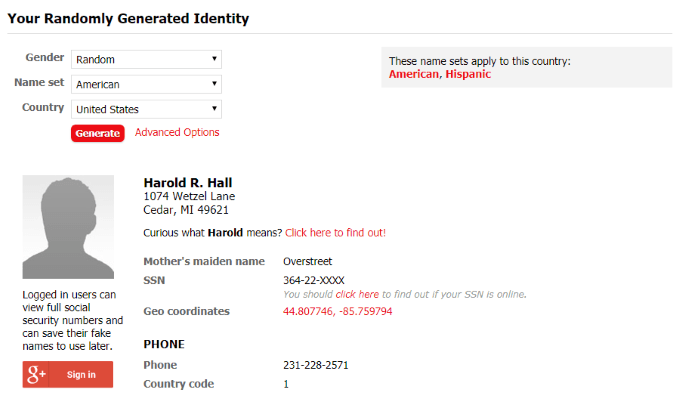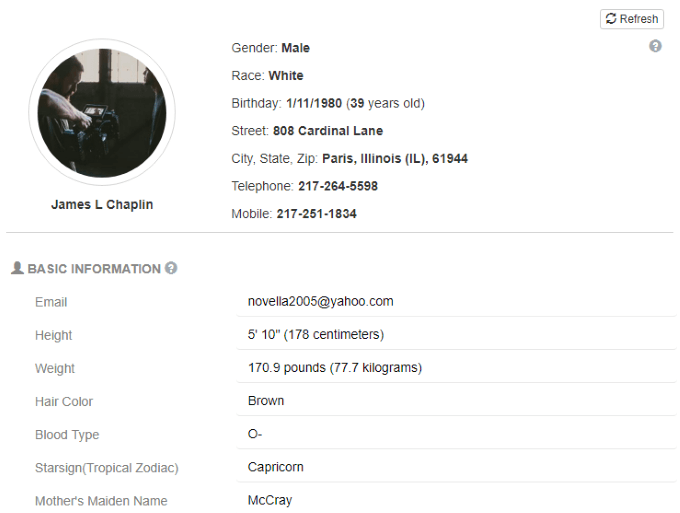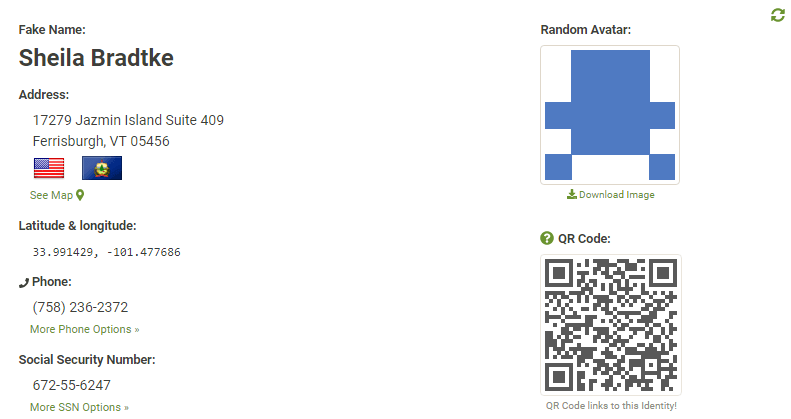Creating a fake online identity isn’t always a nefarious act and, in fact, can sometimes save you from major inconveniences such as identity theft and spam.
With
the overwhelming amount of leaks and security breaches that have
occurred lately, you put yourself at risk every time you provide a
website or mobile app with your personal information. Sometimes, that
trade-off isn’t fair.


For
any website that you intend to use for non-financial purposes, why
use your real information at all? It’s completely unethical to use
someone else’s personal information, though, and you don’t have
to do that. There are several websites that will do the hard work of
creating a fake identity for you.
In
this article, let’s explore five of the best websites where you can
generate a fake, disposable identity to protect your privacy and
security across the internet.
FakeNameGenerator
FakeNameGenerator provides the best overall experience when it comes to generating a fake online identity due to how simple it is at its core yet how thorough it is in its features.


FakeNameGenerator generates all of the basic information that you’ll need, including (but not limited to) full name, address, SSN, phone number, age, birthday, email address (with access to a disposable inbox via FakeMailGenerator), username, password, credit card details, employment details, and physical characteristics.
You
can personalize your identity generation by selecting a name-set
ethnicity, country, gender (by slider percentage), and age range.
FakeNameGenerator also allows users to log in via a Google-connected account and save their identities so you never lose track of them. This is incredibly handy if you plan on sticking to a certain identity for a long period of time.
You’re also able to order (albeit free) sets of fake identities in bulk. By providing some basic criteria, you can have up to 100,000 identities spun up and emailed to you.
FakePersonGenerator
FakePersonGenerator is similar to our first option but varies by offering more identity credentials at the exchange of fewer features (no login or bulk creation support).


Some of the data FakePersonGenerator generates that FakeNameGenerator doesn’t includes passport/license information, quote, biography, interests, favorites (color, movie, music, song, etc.), and security questions.
FakePersonGenerator also includes a photo for every generated identity. Most of these come off as obvious stock images, but it’s a neat consideration.
This
fake identity generator is the best for when you need extensive
details on sites that are more demanding of information. It should
have everything you could possibly need.
FauxID
FauxID provides an interesting mix of the features from the other two websites we’ve discussed. It doesn’t provide quite as much fake information as FakePersonGenerator, but it comes with additional features comparable to FakeNameGenerator.


FauxID is a more neat and visual solution, displaying icons for country flags, state flags, and credit card providers. It also provides a random avatar, which is really just a mess of pixels, and a QR code that links to the identity.
This
fake identity generator will provide you with a full name, address,
phone number, SSN, age, ethnicity, credit card details, bank details,
cryptocurrency addresses, company and employee details, and internet
details.
At
the bottom of the page for each identity, you can find a permalink
URL. This will allow you to bookmark your information or share it
with others. You can also download any identity’s details as a JSON
or CSV file.
While FauxID doesn’t have login support, it does track your ten most recently generated identities. There’s also a way to view all recently generated identities. FauxID’s bulk identity generation page is currently available, but it won’t be functional until a later date.
With
these three websites, creating a fake account identity for any online
service should be a breeze. Keep in mind that any time you’re
signing up for an account online, you’re putting your personal
information at risk. While terms and policies do exist that can get
you in trouble for using fake information on some websites, you’ll
often come across ones that let you get away with doing this.
Of all of the information you share online, your email and password may be the most important to protect. Luckily, we have ways to help you find out if your email has been compromised or know if your password has leaked in a breach.
